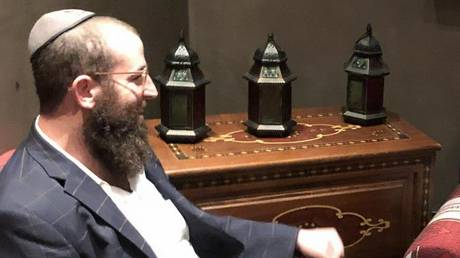ARTICLE AD BOX
BULLET-riddled ruins of a luxury hotel complex provided an eerie backdrop to dramatic film scenes set in World War Two.
Transformed into model-turned-war journalist Lee Miller, Kate Winslet shot part of new biopic Lee at the sinister-looking resort in Croatia.
 Splash
Splash Splash
Splash Splash
Splash Sky
Sky Lee Miller Archives
Lee Miller Archives Shutterstock
Shutterstock
Miller documented the atrocities of World War Two and was famously photographed posing in Adolf Hitler’s bath.
In need of a realistic setting for war scenes, director Elen Kuras turned to the ghostly complex in Kupari village – just a stone’s throw from Dubrovnik’s busy beaches.
Action shots show Winslet dressed in khakis surrounded by rubble and smoke at the site.
Once bustling with tourists, the crumbling ruins are scarred by Croatia’s own war history.
With the Grand Hotel as its crowning jewel, the site features several other hotels – Pelegrin, Goricine I, Goricine II, Kupari and Galeb – able to accommodate thousands of guests.
The Grand Hotel flung its doors open in 1919 after a forward-thinking Czech investor realised the area’s tourism potential.
From the 1960s to the 1980s, several other hotels popped around it – largely bankrolled by the military.
It then became a huge draw for the Yugoslav military elite and their families – and Yugoslavian leader Josip Broz Tito even had his private villa there.
Spots at the hotel became harder and harder for normal holidaymakers to snap up – with rooms often prioritised for those with military connections.
But when the Balkans conflict kicked off in the 1990s, the Yugoslav People’s Army dramatically bombed their own precious holiday project in a bid to push out the Croatian soldiers.
They then badly vandalised the once-plush hotels, igniting phosphorous bombs and looting the rooms.
Following the destruction, Croatia’s army used the complex as a base before it was abandoned for good as the new millennium dawned.
The few remaining relics were then stripped out by locals, and the site has stood empty ever since and never returned to its former glory.
 Shutterstock
Shutterstock Shutterstock
Shutterstock Alamy
Alamy Alamy
AlamyOnce a revolving door for high-ranking officers, its only visitors now are curious explorers.
But there remains hope for the stagnating site as it sits on prime tourism turf, with many investors and developers understood to be eager to snap up the plot.
There are understood to be plans to renovate the site, now nicknamed the “bay of abandoned hotels”.
The Grand Hotel would be kept as the centrepiece, but the other hotels would be demolished to make way for new constructions.
Who was Lee Miller?

MODEL-turned-war photographer Lee Miller famously worked as a war correspondent for Vogue during World War Two.
Born in 1907 in Poughkeepsie, New York, Lee began experimenting with the photographic process as a child in her father’s darkroom.
Lee’s modelling career was launched in 1927 after a chance encounter with Vogue founder Conde Nast led to a drawing of her in a blue hat and pearls appearing on the cover.
She became one the most sought-after models in the city for the next two years before she moved to Paris in 1929.
From then until 1932, Lee was artist and commercial photographer Man Ray’s muse, collaborator and lover.
In 1932, Lee returned to New York and opened up her own photography studio – which she abandoned two years later to marry Egyptian businessman Aziz Eloui Bey.
But by 1937, Lee had grown tired of her life in Cairo and decided to head back to Paris – where she met British painter Roland Penrose.
When World War Two broke out in 1939, Lee was living in London with Penrose.
Defying calls for her to return to her family in the US, Lee took up a new role as a photojournalist for Vogue.
She documented the Blitz and the liberation of Paris – and in 1942 became accredited to the US army.
Lee also photographed concentration camps at Bunchenwald and Dachau – laying bare the atrocities of the Nazi regime.
She was famously photographed in Hitler’s bathtub on April 30, 1945 – the day the ruthless dictator took his own life.
Lee continued working for Vogue for two years after the war and in 1947 became pregnant with her only child, Antony Penrose.
Having spent years capturing shocking scenes on camera, Lee was haunted by what she had witnessed and she became dependent on alcohol.
She and Penrose moved from London to Farley Farm in East Sussex in 1949, where she turned her attention to cooking.
Lee died of lung cancer at Farley Farm in 1977 at the age of 70.
.png)
 1 month ago
1
1 month ago
1








 English (US)
English (US)